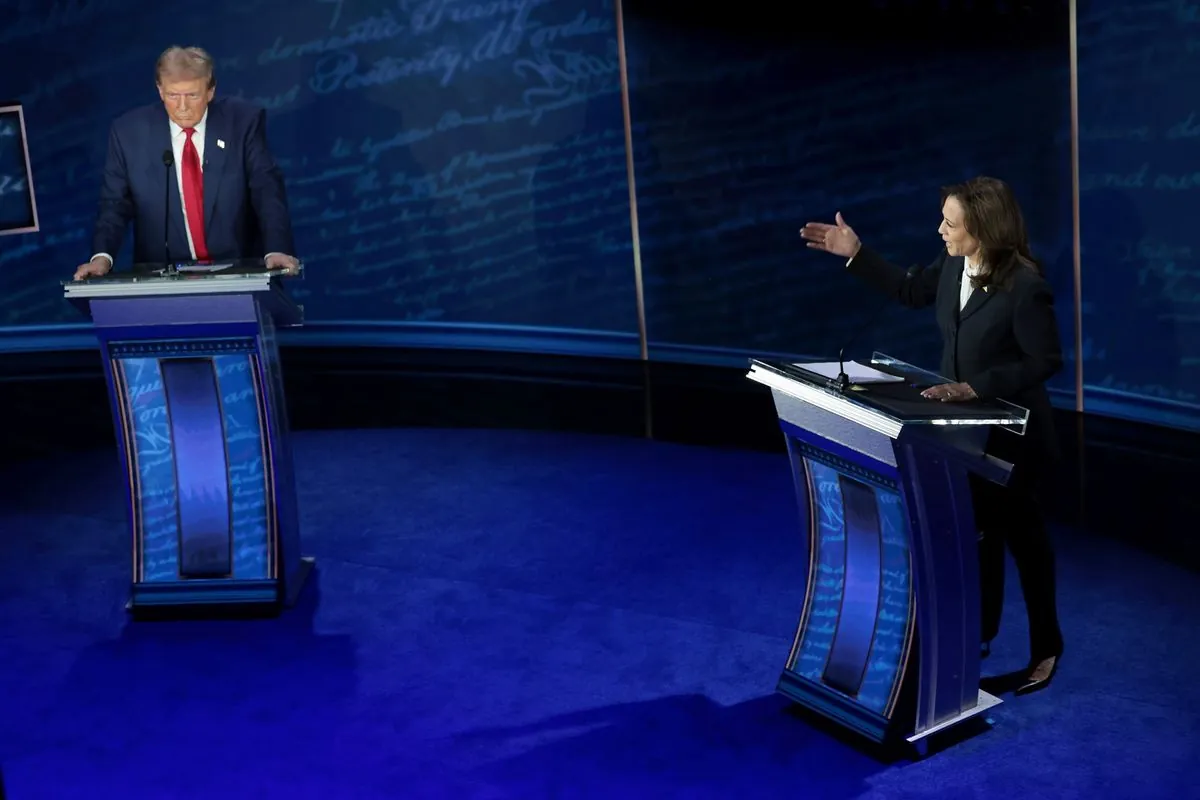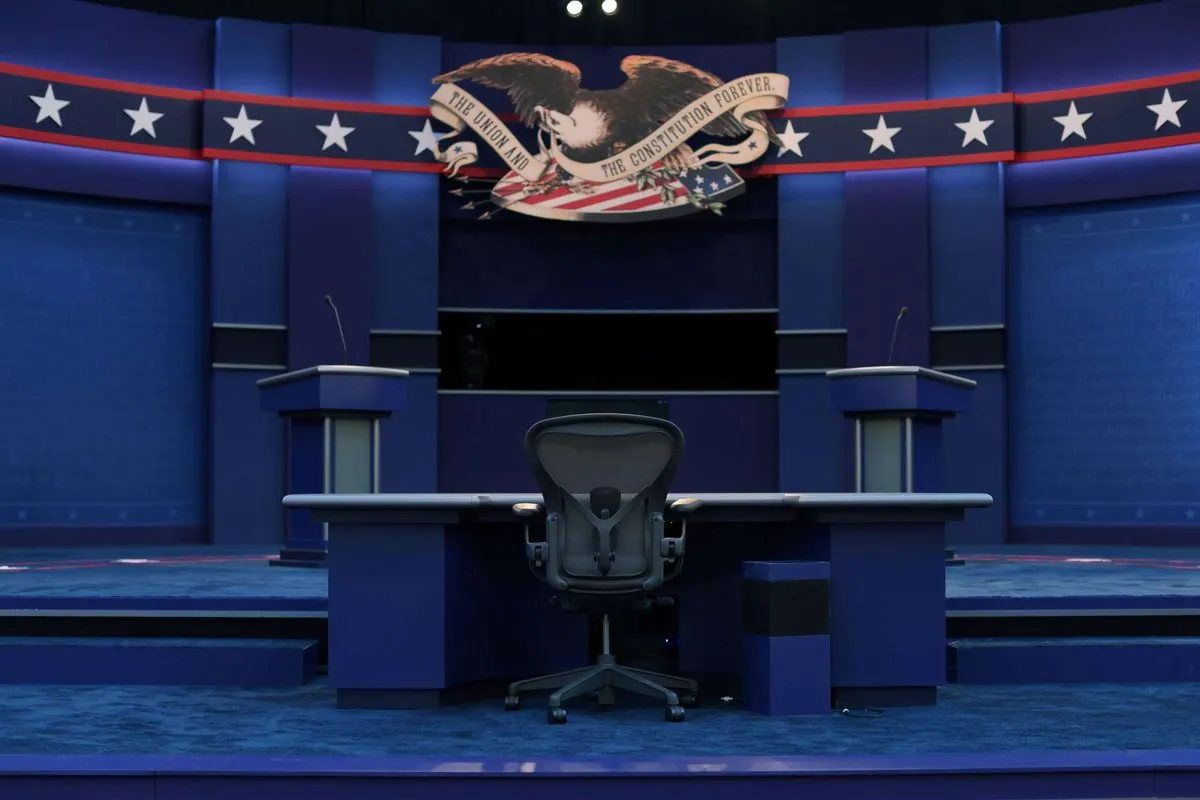Harris-Trump Debate Draws 67.1 Million Viewers, Sparks Controversy
The recent presidential debate between Kamala Harris and Donald Trump attracted 67.1 million viewers, surpassing June's numbers. ABC's fact-checking approach during the event has ignited partisan discussions.

The recent presidential debate between Kamala Harris and Donald Trump has captured significant public attention, drawing an audience of 67.1 million viewers. This marks a substantial increase from the June debate that led to President Joe Biden's withdrawal from the race.
ABC News hosted the event, which was broadcast across 17 different networks. The Nielsen company reported that the viewership surpassed the 51.3 million who tuned in for the Trump-Biden debate in June. However, it fell short of the record 84 million viewers who watched the first Trump-Clinton debate in 2016, which occurred approximately 8 years ago.

The debate's importance was heightened due to recent political developments. Kamala Harris, who made history in 2020 as the first woman of color nominated for national office by a major party, was widely perceived to have outperformed Trump. This perception has led to sharp criticism of ABC moderators David Muir and Linsey Davis from Trump and his supporters.
A notable aspect of this debate was ABC's approach to fact-checking. Unlike CNN's handling of the June debate, ABC moderators engaged in real-time fact-checking, correcting four statements made by Trump on topics including abortion, immigration, the 2020 election, and violent crime. This practice of fact-checking during debates became more prominent during the 2012 election cycle.
"The ABC moderators are doing an excellent job."
Conversely, conservative commentator Ben Shapiro expressed a starkly different view, illustrating the partisan divide in opinions about the debate's moderation.
Currently, no additional debates between the presidential candidates are scheduled, although Fox News Channel has publicly offered alternatives. CBS is set to host a vice presidential debate between Tim Walz and JD Vance, continuing a tradition that began in 1976 with the debate between Walter Mondale and Bob Dole.
The impact of presidential debates on voter opinions and election outcomes cannot be understated. Since the first televised debate between Kennedy and Nixon in 1960, these events have become crucial moments in campaign cycles. The introduction of social media has further amplified their reach, with real-time commentary becoming increasingly prevalent since 2008.
As the election approaches, the political landscape continues to evolve. The practice of "spin rooms," where campaign surrogates interpret debate performances for media, which began in the 1980s, is likely to play a significant role in shaping public perception in the coming weeks.


































